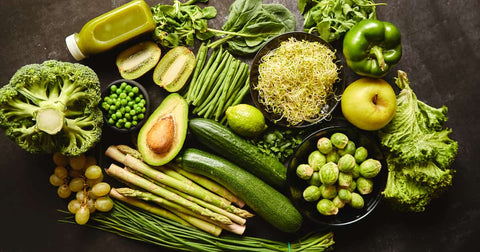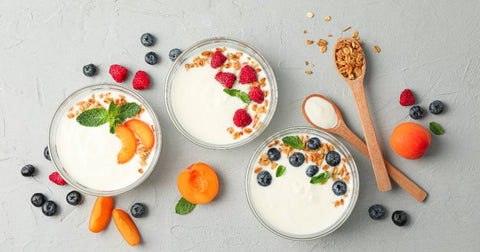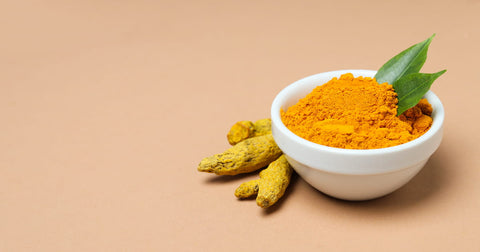Vitamin K, often overshadowed by its more popular counterparts like vitamin C and D, plays a crucial role in maintaining overall health. This fat-soluble vitamin is essential for blood clotting, bone health, and various other bodily functions.

If you're looking to boost your vitamin K intake and enjoy the delicious benefits of nature's candy, this article will guide you through the top 8 vitamin K fruits, their nutritional power, and how to incorporate them into your diet.
Understanding Vitamin K
Vitamin K exists in two main forms:
-
Vitamin K1 (phylloquinone): Found primarily in plant-based foods like leafy green vegetables.
-
Vitamin K2 (menaquinone): Found in animal products and fermented foods.
Both forms are essential for various bodily functions, including:
-
Blood Clotting: Vitamin K is crucial for the production of clotting factors, which help stop bleeding.
-
Bone Health: It plays a role in bone mineralization and may help prevent osteoporosis.
-
Heart Health: Some studies suggest that vitamin K might help protect against heart disease.
Vitamin K Generic Name: Phylloquinone and Menaquinone

The generic names for vitamin K1 and K2 are phylloquinone and menaquinone, respectively.
Vitamin K Fruits: Nature's Bounty
While leafy green vegetables are often touted as the best sources of vitamin K, several fruits also offer a good amount of this essential nutrient.
Top 8 Vitamin K Fruits
1. Avocado:
This creamy fruit is surprisingly high in vitamin K1, providing about 21% of the recommended daily intake per half an avocado.
2. Kiwi:

This tangy fruit is another good source of vitamin K1, offering about 40% of the recommended daily intake per 100 grams.
3. Blackberries:
These sweet and tart berries provide about 29% of the recommended daily intake of vitamin K1 per cup.
4. Prunes:
These dried plums are not only rich in fiber but also offer a decent amount of vitamin K1.
5. Pomegranate:
This antioxidant-rich fruit contains a moderate amount of vitamin K1.
6. Grapes:
Both green and red grapes contain some vitamin K1.
7. Blueberries:
These popular berries offer a small amount of vitamin K1 along with other antioxidants.
8. Raspberries:

Another good source of antioxidants, raspberries also provide a small amount of vitamin K1.
Do Bananas Have Vitamin K?
Bananas are not a significant source of vitamin K. While they offer other essential nutrients like potassium and fiber, they contain minimal amounts of vitamin K.
What Food is Highest in Vitamin K?
Leafy green vegetables, such as kale, spinach, and collard greens, are the richest sources of vitamin K1. Natto, a fermented soybean product, is an excellent source of vitamin K2.
Food Intolerance and Vitamin Deficiencies
If you experience digestive issues or suspect you might not be absorbing nutrients properly, consider the possibility of food intolerances. These sensitivities can disrupt your gut health and hinder nutrient absorption, potentially leading to vitamin deficiencies, including vitamin K deficiency.
Food Sensitivity Test Kit: Identify Your Triggers
If you're concerned about potential food intolerances or vitamin deficiencies, consider taking a food sensitivity test kit. This can help identify specific foods that might be triggering your symptoms and provide insights into your nutritional status.
Key Takeaways:

-
Vitamin K is crucial for blood clotting, bone health, and other bodily functions.
-
Several fruits, including avocados, kiwi, and blackberries, are good sources of vitamin K1.
-
If you experience digestive issues or suspect a vitamin deficiency, consider a food sensitivity test and consult a healthcare professional.
Remember, this article is intended for informational purposes only and should not be considered a substitute for professional medical advice. If you have any concerns about your health or vitamin K levels, consult a qualified healthcare professional.
Frequently Asked Questions:
1. Can I get enough vitamin K from fruits alone?
While fruits can contribute to your vitamin K intake, it's best to include a variety of vitamin K-rich foods in your diet, especially leafy green vegetables like kale and spinach, which are the most abundant sources.
2. What are the signs of vitamin K deficiency?
Vitamin K deficiency is rare, but signs can include easy bruising, excessive bleeding, and poor bone health. If you have concerns about vitamin K deficiency, consult your doctor.
3. Can I take vitamin K supplements?
Yes, vitamin K supplements are available. However, it's important to talk to your doctor before taking any supplements, especially if you're taking blood thinners or other medications, as vitamin K can interact with certain drugs.
4. I'm experiencing digestive issues after eating some of these fruits. Could it be a food intolerance?
Yes, it's possible to have a food intolerance or sensitivity to certain fruits. If you experience symptoms like bloating, gas, or diarrhea after consuming fruits, consider a food sensitivity test to identify potential triggers and make informed dietary choices.
5. Besides blood clotting and bone health, are there any other benefits of vitamin K?
Emerging research suggests that vitamin K might play a role in heart health, brain function, and even cancer prevention. However, more studies are needed to confirm these potential benefits.


.png?v=1737390083)
.png?v=1737187409)


